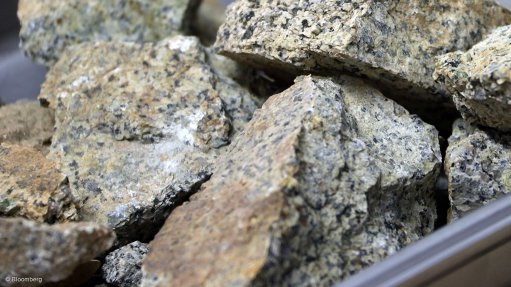
Photo by: Bloomberg
PERTH (miningweekly.com) – The resources sector has welcomed initiatives from the Victorian government to regulate the minerals industry but has lamented the lack of support for critical minerals development and additional payroll taxes.
In its 2023/24 Budget, the Victorian government allocated A$23.3-million in new funding to the resources sector, including the establishment of an Earth Resources Approvals Coordinator which will provide strategic project facilitation to help complex mining projects navigate through the array of Acts, regulators and tiers of government and deliver much-needed investments in regional Victoria.
“Royalty income is forecast at A$574-million through to 2026/27 reflecting a strengthening minerals industry,” said the Association of Mining and Exploration Companies’ (Amec's) CEO Warren Pearce.
“The Budget has allocated A$23.3-million in new funding for the Victorian resources industry to uplift regulator capability and approvals processes along with delivering its planned regulatory reform.
“The allocated budget funds will be directed toward establishing a coordinating body, drawing precedent from a similar initiative used successfully for the extractives industry, to facilitate project approvals and streamline the regulatory landscape across departmental jurisdictions, reducing overlap and improve timeframes and outcomes.
“Amec has long advocated for a more efficient approvals process in Victoria, alongside critical legislative reform, and is looking forward to working with government to deliver these important initiatives,” said Pearce.
The 2022 Budget included an investment of A$7.4-million over three years to support the development of a critical minerals prospectus and grants programme.
“One year on and we have not seen a prospectus or a grants programme. It’s time Victoria put pen to paper and developed a Critical Minerals Strategy as leading mining jurisdictions have done. A clear path forward would support both industry and federal government investment in this new frontier for the mining industry,” said Pearce.
“While Australia has remained the most attractive region in the world for mining investment, Victoria has continued to rank among the lowest Australian jurisdictions for the three key parameters of investment attraction, policy perception and best practices mineral potential in the internationally respected annual Fraser Institute Survey, released earlier this month.”
“Industry needs clear government support to continue exploration success, the identification of new mineral deposits and the ability to progress discoveries into productive operating mines that will lead to growth, jobs and investment.
“Victoria must compete as an exploration and mining destination of choice and needs to work harder to secure the future of the industry and its important role in underpinning the government’s key emissions objectives,” said Pearce.
Meanwhile, the Minerals Council of Australia (MCA) has expressed concern around the state government’s additional payroll tax, with MCA Victoria executive director James Sorahan saying this tax increase was an increase on Victorian mines and came at a bad time for increasing confidence for new investment in Australian mining.
“This tax increase will be an additional burden on the very businesses that kept the Australian economy from a prolonged recession as the nation battled Covid,” he said.
Also pointing to the Fraser Institute report, which ranked Victoria very poorly on approval timeframes, Sorahan said that more work needed to be done to deliver timely permitting approvals and to support industry investment.
“Clearer and more certain project approval timeframes, and reform to Victoria’s flawed gold royalty, are required if Victoria is to attract mining investment. Victorian mining is estimated to pay A$140-million in royalties in 2022/23. This is in addition to various fees and charges imposed by mining.
“Victoria needs a broader economic base and a more diverse economy. Development of the pipeline of critical minerals projects would mean more mines, more jobs and generate royalties to fund state services and enable sustained Budget repair,” he said.
“Victoria is emerging as a major supplier of mineral sands and rare earths with a number of advanced projects in the pipeline which could double the number of mines in the state. Developing Victoria’s mineral sands and rare earth element deposits will embed Victoria into renewable energy supply chains.
“Importantly, developing Victoria’s projects in mineral sands, copper and zinc, as well as exploration projects in gold, base metals, rare earth elements and lithium, will help reduce inequality in regional areas and provide a much-needed boost to regional Victoria.”